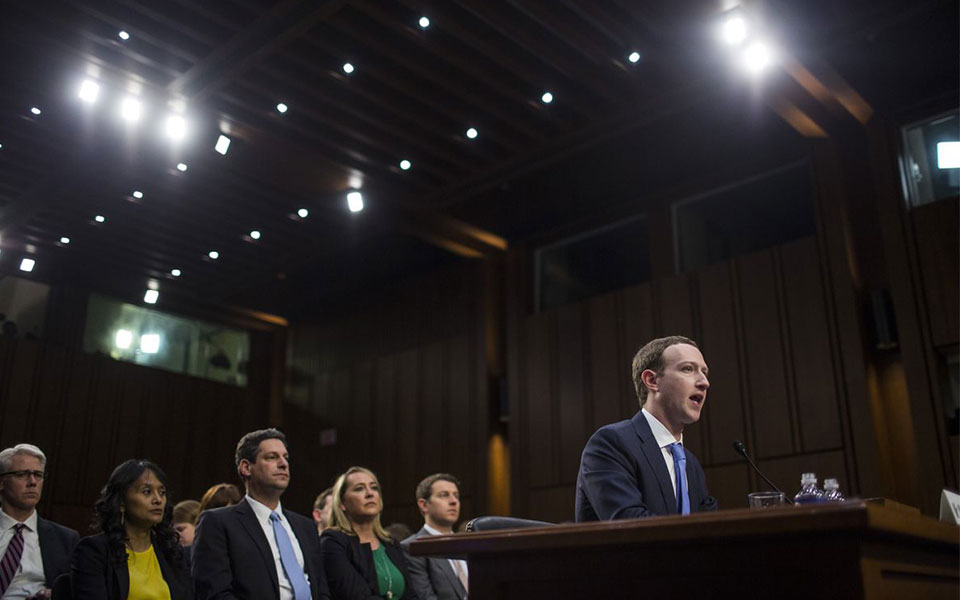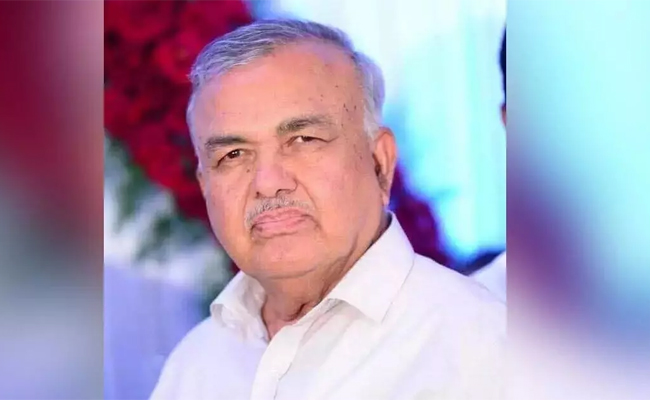San Francisco, April 17: After Facebook CEO Mark Zuckerberg testified in front of the US Congress last week, the company on Tuesday tried to clarify on questions how it collects data when people are not directly using the website or app.
Many websites and apps use Facebook services to make their content and ads more engaging and relevant.
"Apps and websites that use our services, such as the Like button or Facebook Analytics, send us information to make their content and ads better," David Baser, Product Management Director at Facebook, wrote in a blog post.
In return for that information, Facebook helps those websites serve up relevant ads or receive analytics that help them understand how people use their services.
"When you visit a site or app that uses our services, we receive information even if you're logged out or don't have a Facebook account. This is because other apps and sites don't know who is using Facebook," Baser added.
Many companies offer these types of services and, like Facebook, they also get information from the apps and sites that use them.
"Twitter, Pinterest and LinkedIn all have similar Like and Share buttons to help people share things on their services. Google has a popular analytics service. And Amazon, Google and Twitter all offer login features," Facebook said.
These companies -- and many others -- also offer advertising services.
When you visit a website, your browser (for example Chrome, Safari or Firefox) sends a request to the site's server.
The browser shares your IP address so the website knows where on the Internet to send the site content.
The website also gets information about the browser and operating system (for example Android or Windows) you're using because not all browsers and devices support the same features.
"It also gets cookies, which are identifiers that websites use to know if you've visited before. This can help with things like saving items in your shopping cart," Facebook explained.
"So when a website uses one of our services, your browser sends the same kind of information to Facebook as the website receives. We also get information about which website or app you're using, which is necessary to know when to provide our tools," Baser noted.
There are three main ways in which Facebook uses the information it gets from other websites and apps.
"Providing our services to these sites or apps; improving safety and security on Facebook; and enhancing our own products and services," Baser said.
"We also use the information we receive from websites and apps to help protect the security of Facebook. For example, receiving data about the sites a particular browser has visited can help us identify bad actors," he posted.
Zuckerberg, appearing before the US Congress last week, told the lawmakers that his own personal data was part of 87 million users' that was "improperly shared" with British political consultancy firm Cambridge Analytica.
"We don't sell the data. We use the data that people put into the system in order to make them more relevant. I believe people own their content," he told the US Congress.
Facebook is embroiled in a widening scandal that a British data firm called Cambridge Analytica improperly gathered detailed information on its 87 million users.
Let the Truth be known. If you read VB and like VB, please be a VB Supporter and Help us deliver the Truth to one and all.
Guwahati (PTI): The opposition Congress on Tuesday took the lead in announcing its first list of 42 candidates for the upcoming assembly elections in Assam, with it comprising both sitting MLAs and former ministers, and also new faces, including sons of three prominent politicians.
The party's chief ministerial candidate and state president Gaurav Gogoi will contest from the prestigious Jorhat assembly constituency, currently held by BJP's Hitendra Nath Goswami.
The Deputy Leader of the Opposition in the Lok Sabha will make his first electoral foray for the assembly.
ALSO READ: Loan recovery agent in Bengaluru murdered for reportedly stepping on accused’s foot
Gogoi is currently the party MP from the Jorhat parliamentary constituency and previously represented Kaliabor twice before it was reconstituted during the delimitation exercise in the state.
The leader of the opposition in the state assembly, Debabrata Saikia, will contest from the family stronghold of Nazira, which he has represented since 2016. His father, former chief minister Hiteswar Saikia, and his mother, Hemoprava Saikia, previously represented the constituency.
Three sitting MLAs -- Nandita Das from Hajo-Sualkuchi, Diganta Barman from Barkhetry and Nurul Huda from Rupohihat -- have also been included in the list.
Das, a two-time MLA, had earlier contested from Boko but following the delimitation exercise in the state, she has been shifted to Hajo-Sualkuchi while Barman and Huda will contest from the same seats they represented in the current assembly.
Former minister and state Congress president Ripun Bora will contest from Barchalla while another former minister, Ajit Singh, will contest from Udharbond constituency in Barak Valley.
Former minister and Deputy Speaker Pranati Phukan, a four-time MLA till 2016, will contest from Naharkatia in Upper Assam.
Tanzil Hussain, son of Dhubri MP Rakibul Hussain, will contest from Samaguri where he had lost to BJP's Diplu Ranjan Sarmah in the 2024 by-elections which was necessitated following the election of the senior Hussain to Lok Sabha.
Prateek Bordoloi, son of Nagaon MP Prodyut Bordoloi, will contest the Margherita seat which was represented by his father thrice since 2001.
Former five-time MP and prominent tea tribe leader Paban Singh Ghatowar's son Pranjal Ghatowar will contest from the Chabua-Lahowal seat.
Assam Pradesh Mahila Congress president Mira Borthakur, who had unsuccessfully contested the last parliamentary polls from Gauhati, has been given the ticket for the prestigious Dispur constituency.
Former BJP MLA Ashok Sarma, who was denied ticket by the ruling party in 2021 and went on to join the Congress in 2024, will contest from his previous Nalbari seat.
Another former BJP MLA and Deputy Speaker Aminul Haque Laskar, who joined the Congress in 2024, will contest from Sonai constituency in Barak Valley.
Former AGP MLA Satyabrat Kalita, who joined the Congress in September 2025, will contest from Kamalpur seat.
Other prominent faces in the list include former Congress MLAs Durga Bhumij from Doomdooma, Binanda Kumar Saikia from Sipahjhar and Bubul Das from Jagiroad (SC) constituency.
The Congress is a leading part of the unified opposition alliance, 'Asom Sonmilito Morcha', formed to challenge the ruling BJP, and has entered into seat-sharing arrangements with the Assam Jatiya Parishad (AJP) and the Left, but is yet to finalise it with Raijor Dal.
Presently, the ruling BJP's strength in the 126-member assembly is 64, while its allies AGP has nine MLAs, UPPL has seven and BPF has three members.
In the opposition camp, the Congress has 26 MLAs, AIUDF has 15 members and CPI(M) has one MLA. There is an Independent legislator as well.





